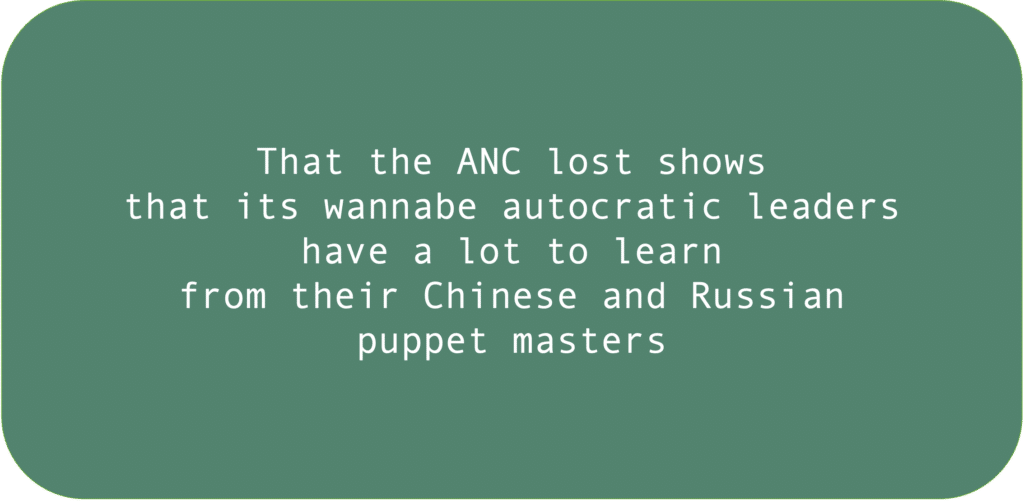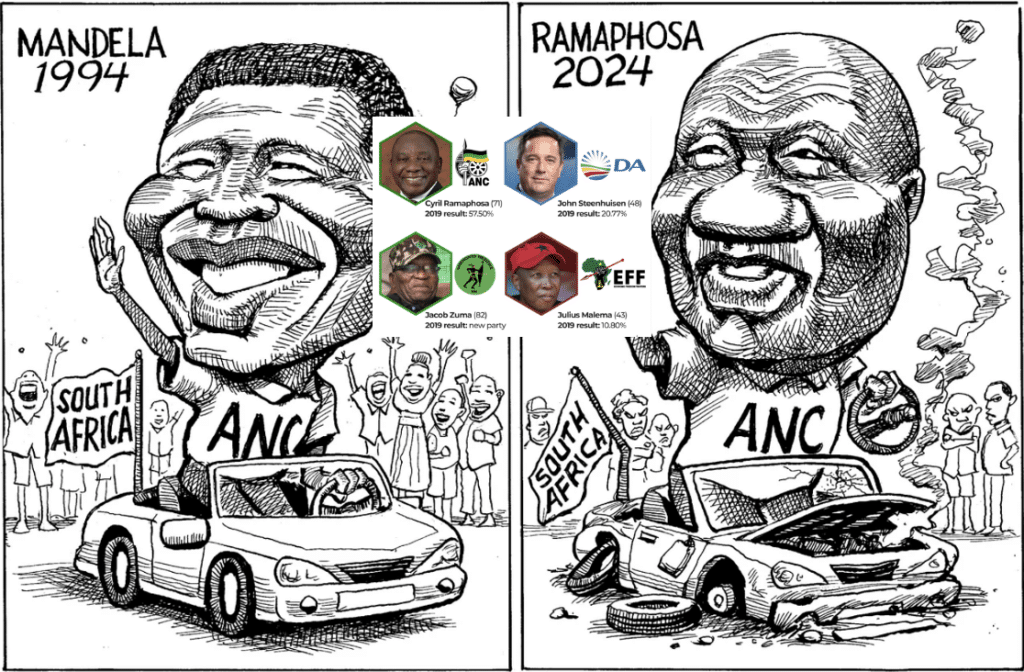
The African National Congress (ANC), headed by President Cyril Ramaphosa, has lost its parliamentary majority for the first time since the end of Apartheid. It won only 40 percent of the vote, a humiliating drop from the 58 percent it secured in 2019.
Granted, the M.K. party, a rebel faction of the ANC led by former President Jacob Zuma, siphoned off many ANC votes, winning 15 percent. The Democratic Alliance, the quinquennial opposition, won 22 percent, while the Economic Freedom Fighters, a party of rebels without a cause, secured 10 percent.
But these results came as no surprise. After all, many Black South Africans are praying for an end to ANC rule with even greater fervor than they prayed for an end to Apartheid.
After decades of dominance, the ANC is now grappling with a shocking reality: national humiliation. It once symbolized hope and liberation, but now it’s the poster child for corruption and mismanagement.
From liberation heroes to scandal magnets
Corruption and mismanagement transformed Zimbabwe from the breadbasket of Africa into a basket case. Similarly, they have turned South Africa from a beacon of freedom into a bastion of dysfunction.
Nelson Mandela led this country into a new dawn with distinction and competence. And Thabo Mbeki seemed a suitable successor to continue his legacy.
But the ANC unceremoniously dumped Mbeki for Jacob Zuma. It’s no exaggeration to say Zuma corrupted the ANC in South Africa just as much as Donald Trump has corrupted the GOP in America.
Nobel Laureate Nadine Gordimer was almost as respected an ANC pioneer as Mandela. Yet she went to her grave in 2014, bemoaning that the party was betraying its original political and social values.
Corruption and mismanagement became the ANC’s Achilles’ heel. Scandals erupted like popcorn in a microwave, from the Gupta family’s state capture to endless tales of graft involving party officials.
Soon, public trust in the Black leadership Mandela embodied began eroding like sandcastles facing the tide. ANC heroes began turning into villains of their own story.
 KAL
KAL
The economy: a comedy of errors
If corruption cut like a knife, the economy decayed like a poison. South Africa’s economic woes are no joke, but the ANC’s handling of them often felt like one.
- Unemployment soared, and infrastructure crumbled.
- The gap between rich and poor Blacks became even greater than the gap between Whites and Blacks during Apartheid.
- Economic policies seemed to be written by a functionary who failed Econ 101.
- The very land reforms that reduced Zimbabwe to starvation were hailed like manna from Heaven.
- The poor resorted to dark humor to cope with constant blackouts.
In short, the ANC promised “a better life for all.” But it delivered little more than despair and disappointment.
Thirty years later, basic services like healthcare, education, and housing remain out of reach for many. I mean, what good is the right to vote, if that right leads to less food, water, and electricity.
A new political reality
South Africans are understandably tired of waiting for a better life. Thus, voters are taking matters into their own hands.
The problem is that opposition parties are still too fractious and powerless to enact policies to halt the country’s downward spiral. And the ANC, licking its wounds, must now navigate a parliament where it no longer calls the shots.
There was nothing uncertain about ANC rule: it was unfailingly corrupt and dysfunctional. But with these election results, uncertainty abounds. Foremost is the challenge of forming a minority coalition government.
It speaks volumes that, despite the corruption and dysfunction, South Africa is the Dark Continent’s most stable country with the biggest economy. But the ANC’s downfall will force this country to chart a very uncertain course. Apropos of which, I hope my opening epigraph isn’t lost on you.
Frankly, the rise and fall of the ANC played out like a drama that rivals any telenovela, complete with heroes and villains, now brewing with suspense. But I fear the next episode will be more plodding than riveting.